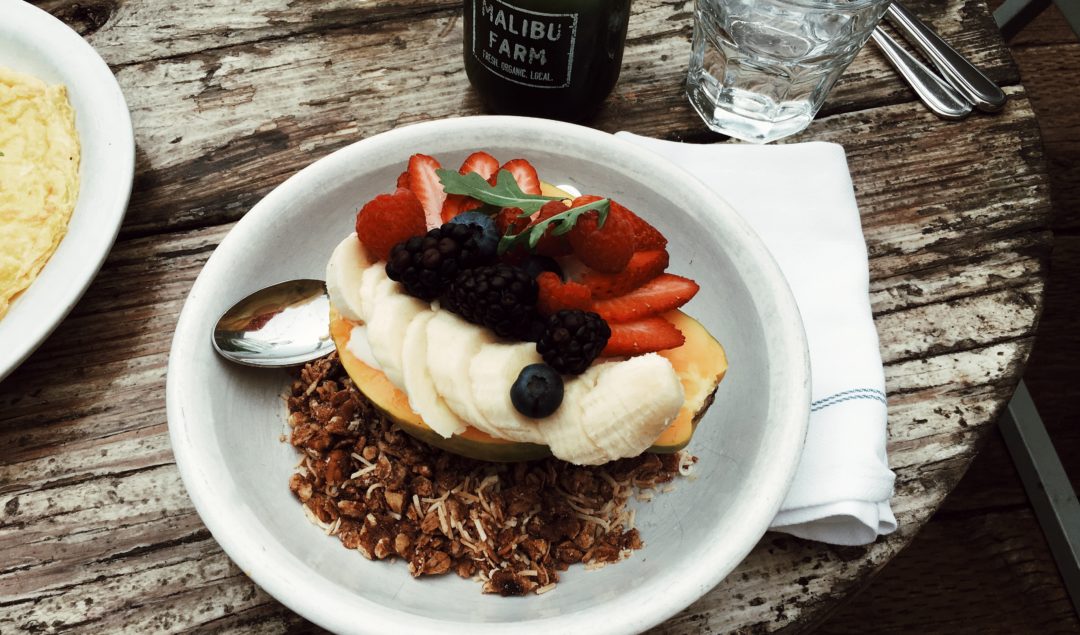Less Meat, More Plants – One Simple Swap to Help the Environment

I’m sure by now we’ve all seen images that show just how severely we as humans have impacted the environment. From images of sea turtles dying from plastic straws to whales washed ashore found with pounds of plastic in their stomach, there’s no doubt that our footprint is making an impact on this planet we call home. More than ever, I’ve found myself looking for ways to help the environment and reduce my footprint.
Less Meat, More Plants – One Simple Swap to Help the Environment
I’ll be honest – I have not always been the most conscious consumer when it comes to sustainability and the environment. But it’s a cause that is incredibly important to me and one that I want to spend more energy on. Using less plastic is an easy change we can all make to help protect our environment and the other creatures that inhabit our earth. Another simple swap you can make to reduce your carbon footprint and help the environment:
Eat less meat and more plants.
Did you know reducing your consumption of meat and dairy is the single most impactful lifestyle change you can make to help the environment? According to a recent study, meat and dairy use the majority of farmland and produce the majority of farming’s greenhouse gas emissions.According to Scientific American, “…the production, processing and distribution of meat requires huge outlays of pesticides, fertilizer, fuel, feed and water while releasing greenhouse gases, manure and a range of toxic chemicals into our air and water… red meat such as beef and lamb is responsible for 10 to 40 times as many greenhouse gas emissions as common vegetables and grains.”
What do you know, your parents were right – it really is good to eat your vegetables!
Research also increasingly shows meat, especially red meat, to be a carcinogen, and recommend primarily plant based diets for health. Presented with all of this evidence, it became harder and harder to ignore the negative impacts of the meat and dairy industries on our planet. And ultimately my own health.
I never wanted to be one of those people that preached a vegan diet over others. Nor do I believe everyone should ascribe to this way of eating. To be clear, I do not consider myself a vegan! What I do is try to choose the plant based option as much as possible.
Over the past several months, we have essentially eliminated meat, dairy, fish, and eggs from our household. We now treat these items as a luxury. Think of your diet as a bank account – you want to keep it balanced. If you splurge on a big purchase today, maybe consider spending less for the next few days. We try to approach consuming meat and dairy same way as dessert and alcohol. An occasional treat, but definitely not a daily habit. We don’t cook these products at home and will occasionally consume them out. I’m not 100% plant based (refraining from calling myself vegan because I know it’s a lifestyle that includes more than just diet), but we’re working towards being more and more plant based.
The goal is balance
Like many things in life, I’m all about that 80/20 rule. I’m not perfect by any means. Also, I haven’t been able to give up sushi and I will still eat meat and cheese occasionally. I personally dislike approaching diets in a super restrictive way, for me it’s about sustainability and creating a lifestyle that I can maintain for years to come. Sorry if this makes me a “fake vegan” – in my opinion every little bit helps!
The reason I am bringing this up is because I’ve seen so many people talking about the environment and climate change, and wishing there was something they could do to make a difference. There are actually so many things we can do from small to big that decrease our carbon footprint. From taking shorter showers and being more mindful of turning lights off, to using reusable bags and cups, we could all make small changes that will collectively create a bigger impact and make a difference for future generations.
Eating less meat and dairy is another lifestyle change that does make a difference for the environment. (According to some scientists, more impactful than buying an electric car). And if eliminating all meat feels like too big of a step, even just cutting back (not even eliminating!) on red meat in particular can make a HUGE difference. I understand that eating plant based can be difficult or more expensive for people.
I truly believe we all need to approach our diets in a way that best suits our bodies and lifestyle.
Seeing the popularity of #weekdayvegan on social media and “Veganuary” last month cemented my belief that this is a broader movement that more and more people are moving towards. As far as health trends go, this is one that I can get on board with. If you’re not sure where to begin with reducing your meat intake, take baby steps! Something as simple as going meatless one meal week (try “Meatless Monday” at home) helps introduce new recipes and build new eating habits. I’ll share some of the health benefits I’ve personally experienced by going primarily plant based in a future post, and will also be sharing more vegan food hacks, recipes, and snack ideas on my Instagram in the future.
You Might Also Like…
- Healthy Foods That Can Make You Bloated
- The Importance of Gut Health
- Staying Healthy When Traveling for Work




Love how informative this post was, Amy! Yes, there are definitely so many little ways we can help improve the environment we live in, and I agree that eliminating or cutting back on meat will help tremendously! Like you, I believe in balance, and I think your 20/80 rule is great 🙂 Can’t wait to see what cool snacks you’ll be sharing in the near future! <3
XO, Elizabeth T.
http://clothestoyouuu.com
[…] on transitioning to a primarily plant-based diet has meant finding substitutes for things that were once staples in my diet. While I initially […]